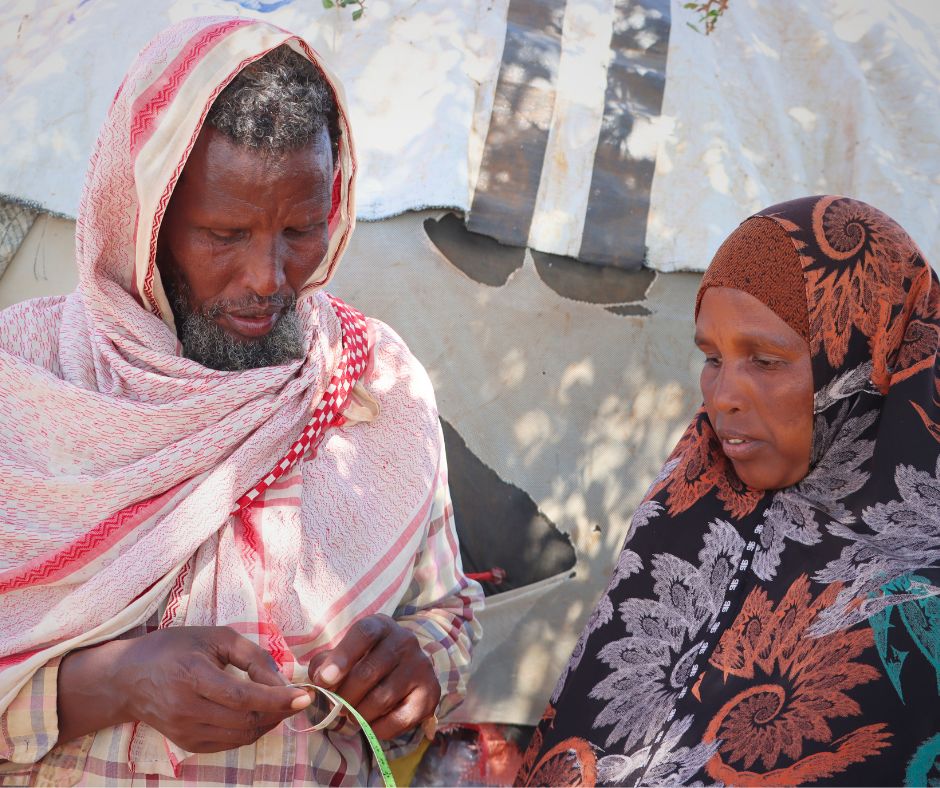Mama Abshiro, a 40-year-old mother from Qoryoweyn village in Mudug region, cannot express her relief following ambulance service to Afbarwaaqo village (43 km) following bleeding she developed at around 4 a.m. and went into hypovolemic shock (circulatory failure due to effective intravascular volume loss) at 7 p.m. While her situation was worsening, the only way to save her was to immediately transport her to the nearest health center.
Her relatives called their local International Medical Corps Community Health Worker (CHW), who immediately called for an ambulance to transport her to Afbarwaaqo Health Center, supported by the International Medical Corps under the funding of EU Humanitarian Aid through the Caafimaad Plus Consortium. Abshiro was admitted to the hospital and stayed for three days, where she received two pints of whole blood. She was immediately given intravenous fluids until her situation stabilized.
Abshiro’s family members, who were first stressed due to the financial shortages and long proximity to the health center, were convinced that their services in their village thanks to International Medical Corps for saving lives.
“I am so grateful. I would have died if I stayed longer.” Noted Abshiro
The IMC team visited her home weeks after her discharge and was glad to see the reception as a result of the assistance offered to Mama Abshiro. She was seated inside her homestead, slowly regaining her health.
The 40-year-old mother now encourages her community members to visit health facilities and consult community health workers. As part of the community elders, Ashiro and her community members are now advocating for a primary health center to be built in their village.
With generous support from ECHO under the Caafimaad Plus consortium, International Medical Corps supports one referral hospital (GAS Hospital), four mobile health and nutrition teams (MHNTs), and eight primary healthcare units (PHUs). MHNTs provide outpatient consultations for common morbidities, including communicable and noncommunicable diseases, routine immunizations, nutrition screening, growth monitoring, and deworming for children under 5, iron and folic acid supplements for pregnant women, treatment of severe acute malnutrition (SAM), health, WASH, nutrition, and protection education, and referral services, including for mental health care and survivors of gender-based violence.
These programs have reached 13,132 people across all the facilities during the last four months of the grant period from December to March.
When referring critical cases to Galkacyo South Hospital and Jariiban Health Center, the health workers use referral funds (e.g., car hire for poor and destitute cases) and provide 24/7 ambulance services to vulnerable communities affected by the drought in Somalia.







